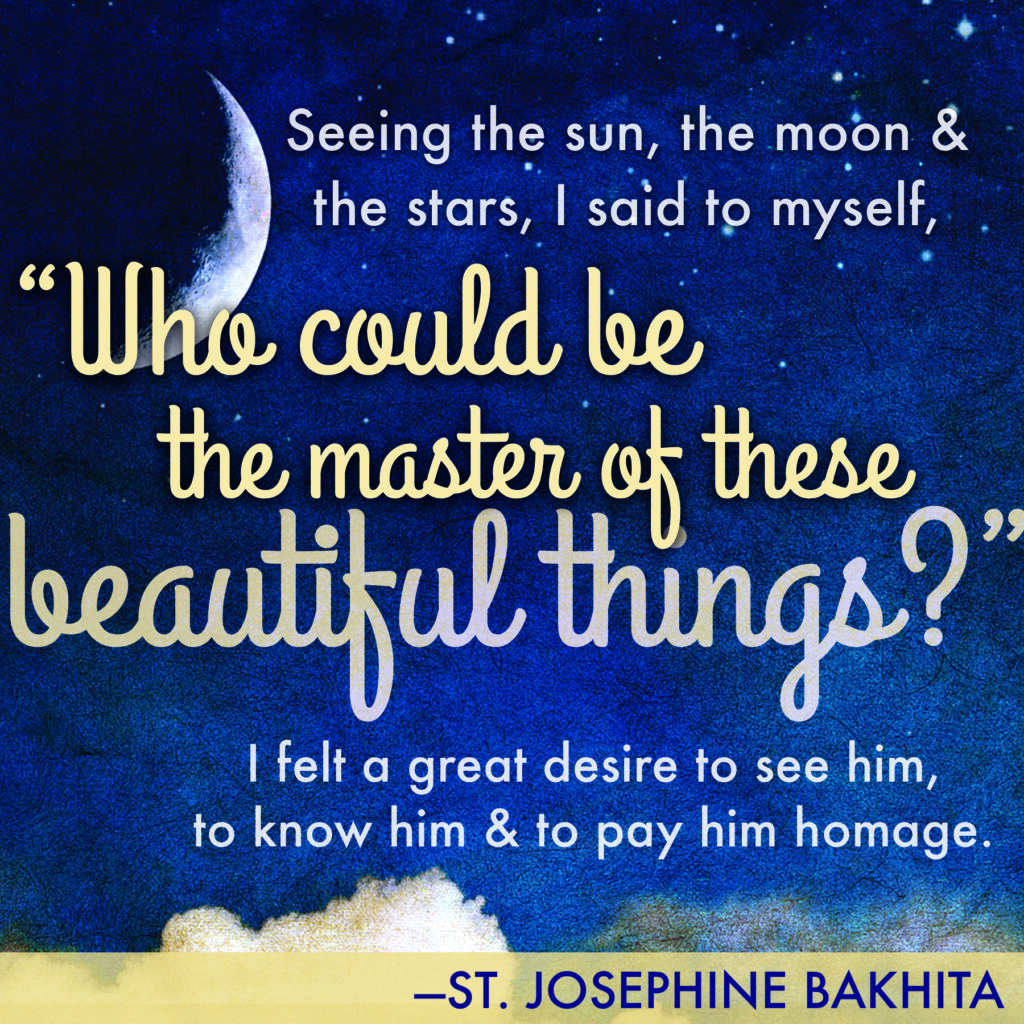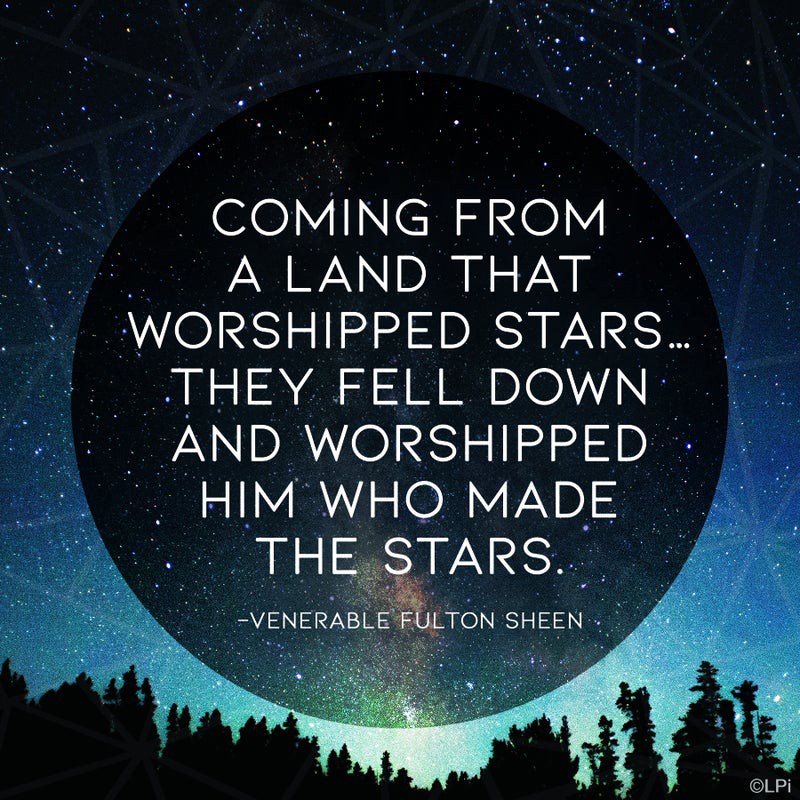Author: Kaitlin Scirri
We’ve all heard it. “The Catholic Church is anti-science.” This common misconception about the Catholic Church has been spread far and wide. Many Catholics have shared with me that when this and other misconceptions come up in conversation, they want to speak up, to defend the faith, to set the record straight. But they don’t know how. They know the Church isn’t anti-science, but they can’t explain why. On the flip side, many claiming that the Church is anti-science also can’t explain why they believe so, yet they firmly hold to that belief.
A common disconnect for many seems to be that science is evidence based. Formulas and calculations can prove certain scientific truths about our universe. So how then can science exist in harmony with faith, something that by its very definition cannot be proven?
It turns out the Church has a lot to say about this topic and finds no conflict between our faith and studying the sciences. Today’s blog will provide some talking points that you can use to defend our Catholic faith when it comes to the Church and science.
Number 1: The Big Bang Theory originated with a Catholic priest.
You read that right! Catholic priest and astronomer Georges Lemaître was the mind behind the theory of an expanding universe. A man of faith and student of physics and math, Lemaître was ordained to the priesthood in 1923. His later studies included the fields of cosmology and astronomy at Cambridge University. Lemaître published his Big Bang Theory in 1927. Though not immediately embraced by the scientific community, Lemaître’s theory is today the most popular and most supported theory of how our universe began.
Number 2: Catholic scientists are not as rare as you might think.
Although often thought of as a secular profession, there are several Catholic scientists who find no conflict between their faith and their work. For example, the Society of Catholic Scientists was founded in 2016 with the intention of bringing Catholic scientists together and testifying to the harmony of faith and reason. Notable among the Society’s leadership team is Dr. Karin Öberg.
Dr. Öberg is a Swedish Astrochemist and Professor of Astronomy at Harvard University. Dr. Öberg, who was once Agnostic, is an adult convert to Catholicism. Dr. Öberg finds that her Catholicism is not in opposition to her work in the sciences. “When I read Genesis, I have that modern cosmology in the back of my mind. I see harmony and I think that the way I read Genesis has become more beautiful the more I learn about our cosmology, our origins, not less so.” (The Search: Why a God? 19:27)

Number 3: Catholics believe in evolution.
It has long been thought by many that Catholics cannot believe in evolution, that it conflicts with what we believe about our Creator and the creation of humans. But this line of thinking is false, as Pope Benedict XVI pointed out in a 2007 speech. Catholics do believe that the universe was created out of nothing by God, and we do believe that God creates each human soul. But the creation of the universe and the biological evolution of humans are two different ideas that do not oppose one another. They simply answer different questions about our world and the beings living within it. Many Catholic schools in the U.S. teach that the human soul is created by God and teach the science of evolution.
Number 4: One of the oldest observatories in the world belongs to the Vatican.
It’s true – the Vatican owns and operates its own observatories! A dozen priests and religious brothers utilize the observatories to conduct scientific research. Situated outside Rome, the Vatican Observatory dates back to the 1500’s and is one of the oldest observatories in the world that is still active today. There is also a second Vatican Observatory located in the United States, in Arizona.
Number 5: Catholics care about the planet.
We don’t just care about the planet – we believe the science and believe it’s time to take action. In 2015, Pope Francis published his encyclical letter, Laudato Si: On Care For Our Common Home. In his letter, the Pope stressed with urgency the need to change the way we treat our planet. He highlighted concerns like global warming, climate change, and our culture of consumption and wastefulness. He has called on the Church and everyone sharing our common home to take responsibility and work toward change.
So there you have it! The Catholic Church neither believes nor teaches that science and faith are in opposition to one another. In fact, the Catechism of the Catholic Church tells us that studying creation through science is a way to help us grow closer to our Creator, to offer God thanksgiving and worship for His incredible goodness (CCC 283).
So the next time someone challenges you about the Catholic Church and science, you will have examples to share like Catholic scientists are a real thing – and have been for centuries! Catholic priests have contributed some of the most well-known, respected, and groundbreaking scientific theories and discoveries. Catholics believe the science about our changing planet and are working to effect change.
And if all else fails, just tell them that even Neil deGrasse Tyson thinks Catholics are pretty amazing when it comes to the sciences! Dr. Tyson, a popular astrophysicist, is the head of the Hayden Planetarium in New York City. He is also host of the Emmy-nominated podcast StarTalk, host and narrator of Cosmos: A Spacetime Odyssey, and author of numerous bestselling books. On more than one occasion during interviews, Dr. Tyson has given credit to Catholic scientists and priests for their groundbreaking contributions to the sciences. Bishop Robert Barron’s Word on Fire ministries even noted Tyson’s admiration of Catholic scientists on their blog, Neil deGrasse Tyson Concurs: Catholicism is the Science-Friendly Religion.

Catholics gaze up at the night sky in wonder and awe, just like others do. Studying science and observing the cosmos brings us closer to our Creator. We don’t doubt His existence because there are unanswered questions about the universe. We embrace both our faith and science, believing that, “the heavens declare the glory of God.” (Psalm 19:2).
Additional Resources:
The Society of Catholic Scientists (Read their Answers to Common Questions here)
Formed: The Search (watch the trailer here!)
You can sign up for a free Formed account to watch The Search and other Catholic content! Just visit the Formed website, enter zip code 14086, and select St. Mary of the Assumption.

